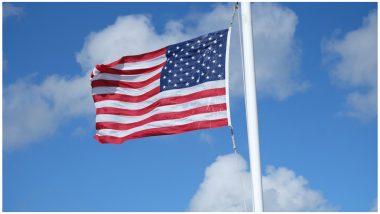Washington, June 22: The United States Supreme Court has ruled that government authorities need a search warrant before obtaining access to data showing the location of cellphone users. However, the court’s ruling will not be applicable in case of emergencies
The court headed by Chief Justice John Roberts with 5-4 opinion guaranteed the protection of Fourth Amendment which will ensure users from unreasonable government searches. The court has upheld lower court’s decision of warrantless searches in cases related to bomb threats, active shootings, and child abductions. “Our decision today does not call into doubt warrantless access to [cell-site data] in such circumstances,” The Wall Street Journal reported The Chief Justice as saying.
Chief Justice Roberts, a conservative along with liberal Justices Ruth Bader Ginsburg, Stephen Breyer, Sonia Sotomayor and Elena Kagan gave the ruling. However, Conservative Justices Anthony Kennedy, Clarence Thomas, Samuel Alito and Neil Gorsuch were of a different opinion.
The court passed the verdict focusing on a case on defendant Timothy Carpenter. Carpenter was convicted of armed robberies in Michigan and Ohio. Prosecutors collected information from MetroPCS and Sprint that showed Carpenter’s whereabouts over several months. The data showed his presence near crime scenes. The prosecutors accessed the information without a warrant. The data was sought under the Stored Communications Act, which requires that there should ‘reasonable grounds’ that the information is relevant to a case.
The United States high court in 1979 had ruled that police didn’t need a warrant to use a pen register device that tracks the phone numbers dialled from a particular line. The court was of the opinion that information was disclosed voluntarily to the phone company so people couldn't reasonably expect privacy in the numbers they dial. A lower court cited this case in upholding Carpenter’s conviction. But on Friday the Supreme Court reversed that ruling by saying cellphones were different.
Privacy groups supporting limited government interference has filed briefs urged the court to adopt the search-warrant requirement for cell-tower data. The Wall Street Journal cited a court brief filed by the Electronic Frontier Foundation which stated that AT&T Inc. and Verizon Communications Inc. combined to receive more than 100,000 law enforcement requests a year for cell-location information, and a majority of those requests come without a warrant. Companies like Apple Inc., Dropbox Inc., Facebook Inc., Alphabet Inc.’s Google, Microsoft Corp. and Verizon Communications Inc. have signed a brief that argued the court should adopt robust Fourth Amendment protections for digital data.
(The above story first appeared on LatestLY on Jun 22, 2018 10:53 PM IST. For more news and updates on politics, world, sports, entertainment and lifestyle, log on to our website latestly.com).













 Quickly
Quickly




















